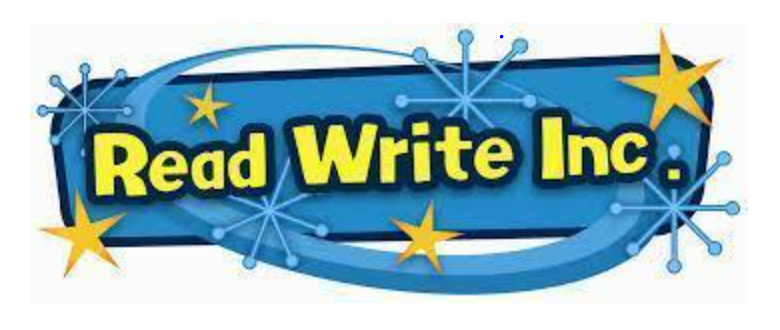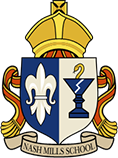Our Phonics Scheme
Phonics

Read Write Inc., developed by Ruth Miskin, provides a structured and systematic approach to teaching literacy. It is used by more than a quarter of the UK's primary schools and is designed to create fluent readers, confident speakers and willing writers. Each Read Write Inc. programme meets the higher expectations of the new curriculum and uses effective assessment to accelerate every child's progress. It is one of the approved schemes from the government’s list of provision.
Read Write Inc - Our Phonics Scheme
The Government strongly recommend the use of synthetic phonics when teaching early literacy skills to children. Synthetic phonics is simply the ability to convert a letter or letter group into sounds that are then blended together into a word.
Here at the Nash Mills, we are using the Read Write Inc (RWI) programme to get children off to a flying start with their English. RWI is a method of learning based upon letter sounds and phonics, and we use it to aid children in their reading and writing.
Reading opens the door to learning. A child who reads a lot will become a good reader. A good reader will be able to read more challenging material. A child who can read more challenging material is a child who will learn. The more a child learns, the more he or she will want to find out.
The children are assessed regularly and grouped according to their ability. They will work with a RWI trained teacher or teaching assistant.
Our Read Write Inc 'Reading Leader' is Miss Brewer
Reading
When using RWI to read the children will:
- Learn 44 sounds and the corresponding letter/letter groups using simple prompts
- Learn to read words using sound blending (Fred talk)
- Read lively stories featuring words they have learnt to sound out
- Show that they comprehend the stories by answering 'Find It' and 'Prove It'
Writing
When using RWI to write the children will:
- Learn to write the letter/letter groups which represent the 44 sounds
- Learn to write words by saying the sounds and graphemes (Fred fingers)
Talking
When using RWI the children will also work in pairs:
- To answer questions
- To take turns talking and listening to each other
- To give positive praise to each other
Blending
Help your child learn to read words by sounding-blending (Fred talk) eg. c-a-t = cat, sh-o-p = shop. Children learn to read words by blending the letter-sounds that are in the Speed Sounds set (shown further down the page).
Help your child to say the pure sounds ('m' not 'muh', 's' not 'suh' etc.) as quickly as they can, and then blend the sounds together to say the whole word.
Reading Books Sent Home
Children in Reception who are learning the first 44 letter sounds and are not blending fluently will bring home sound sheets, picture books and a library book for you to read with them.
Once children can blend fluently and know the first 44 sounds they will bring home Ditty sheets or a Ditty book.
Read Write Inc Books
Please encourage your child to read though the speed sounds page first, then the green and red words page and then check your child understands the meaning of words on the vocabulary check page, before they start reading the book. Your child will have read this book at least three times before they bring it home. They should be able to read this book with fluency and expression by the time they bring it home and they should have a good comprehension of what the book is about. At the back of the book are find it/prove it questions for you to do with your child.
Finally, don't worry if your child is struggling at first with their sounds and words, they will get there in their own time. If you have time (we know it is very precious!), we would urge you to try and read stories to your child before they go to bed. This will help develop a wider vocabulary which makes a vast difference to their quality of writing but it will also encourage them to enjoy a good story. Once you have done this a few times, you could then help them to read some sections or words to help them feel like confident and able readers.
